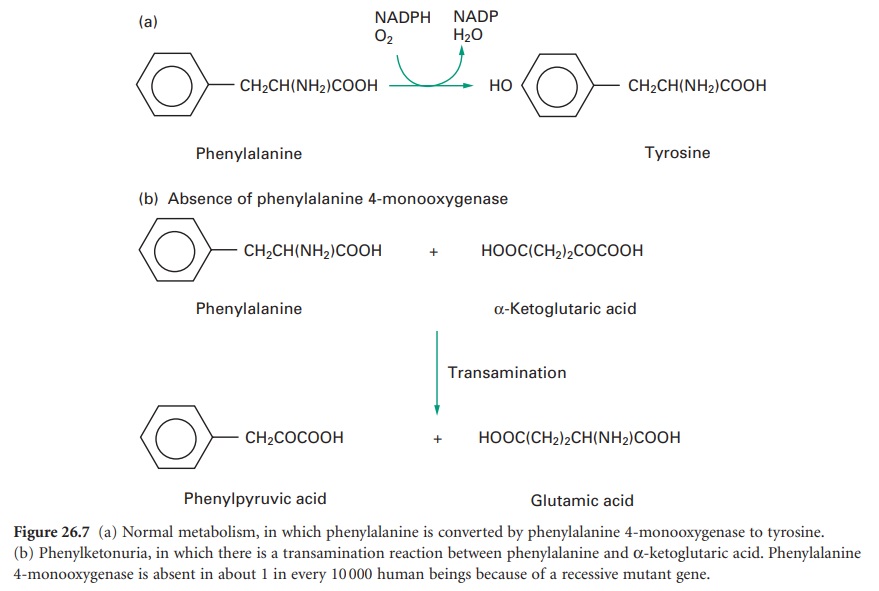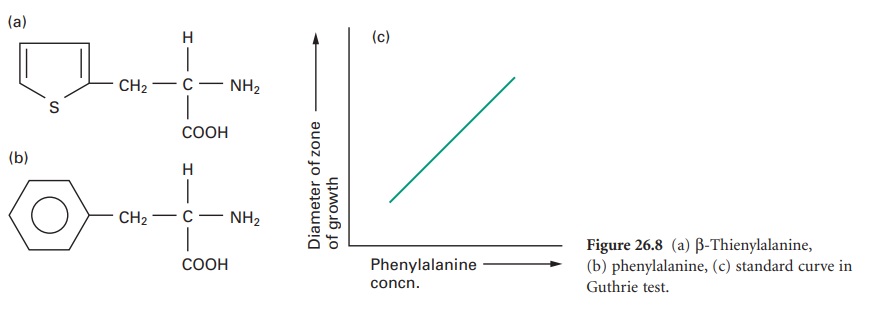Phenylketonuria Testing
| Home | | Pharmaceutical Microbiology | | Pharmaceutical Microbiology |Chapter: Pharmaceutical Microbiology : The Wider Contribution Of Microbiology To The Pharmaceutical Sciences
Phenylketonuria (PKU) is an inborn error of metabolism in which the body is unable to convert surplus phenylalanine (PA) to tyrosine for use in the biosynthesis of, for example, thyroxine, adrenaline and noradrenaline.
PHENYLKETONURIA TESTING
Phenylketonuria (PKU)
is an inborn error of metabolism
in which the body is unable to convert surplus
phenylalanine (PA) to tyrosine
for use in the biosynthesis of, for example, thyroxine, adrenaline and
noradrenaline. This results from a deficiency in the liver enzyme phenylalanine 4-mono-oxygenase (phenylalanine hydroxylase). A secondary metabolic pathway
comes into play in which there is a transamination reaction between PA and
αketoglutaric acid to produce phenylpyruvic acid (PPVA), a
ketone and glutamic
acid. Overall, PKU may be defined
as a genetic defect in PA metabolism such
that there are elevated levels of both PA and PPVA in blood and excessive excretion of PPVA (Figure 26.7).

Control of PKU can be achieved
simply by resorting to a low PA-containing diet.
However, failure
to diagnose PKU will
result in mental
deficiency, and thus
early diagnosis is essential. In 1968, the UK Medical
Research Council Working Party
on PKU recommended the adoption of the Guthrie test as a convenient method for
screening newborn
infants. This assay employs Bacillus
subtilis as the test organism.
In minimal culture
medium, growth of this bacterium is inhibited by β-2-thienylalanine
(Figure 26.8a) and
is competitively reversed
in the presence of PA (Figure 26.8b)
or PPVA. The use of filter-paper discs impregnated with blood
or urine permits
the detection of elevated
levels of PA and PPVA. The test can be quantified by the measurement of the diameter
of the growth zone
around the filter-paper disc and comparing it with a calibration curve constructed from
known concentrations of PA or PPVA (Figure
26.8c). If positive,
the Guthrie test provides presumptive evidence for the presence of PKU. This is then confirmed by other chemical means. The test is still in widespread use but is gradually
being
phased out in favour of modern genetic
testing techniques.

Related Topics
